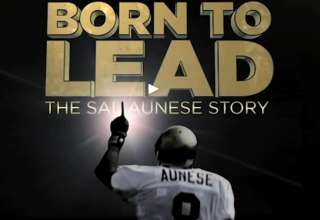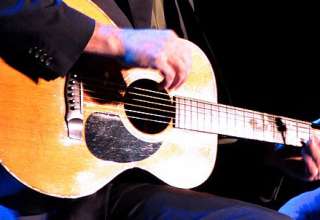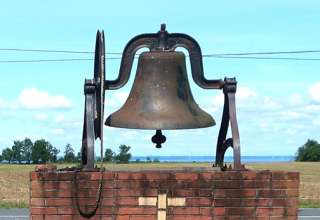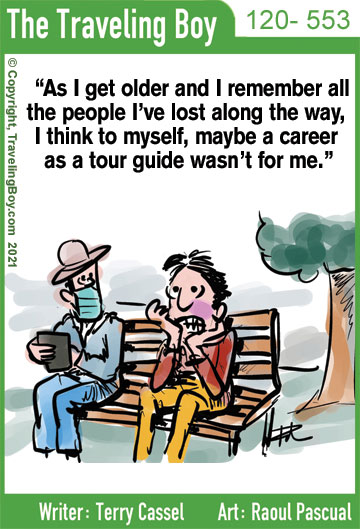King of the Hill
Disclosure alone won’t topple campaign money as the ruler of Congress.
From Barron’s Other Voices, Jan. 13, 1997
Not Long ago the Clinton Administration crowed about agreements with a number of countries to curb bribery in business abroad. Wide implementation of measures such as tax-deductibility of bribes is still a long march away. Still, the laudable effort reflects the belief in U.S. charges that corrupt practices such as bribery in foreign procurement produce inefficiency, surprise derailments and social instability. The stock retort from parties resisting reform: There isn’t a dimes difference between bribery abroad and the U.S. campaign-finance system.
Plenty have professed to be shocked – shocked! – when the White House was caught Huanging it. Alas, many commentators conclude that stricter limits on donations and spending won’t work and that the only real solution is “absolute disclosure.”
Improvements in disclosure are needed, but by itself disclosure is woefully inadequate. Lip service for disclosure as the only route for reform is the fallback position of those in the lobbying world – givers, incumbent receivers and the growth industry between them. They’ll mumble anything to head off public anger at the low art of the thinly disguised bribe.
Reform is a tricky puzzle. Before accepting disclosure not as a tool but as a panacea, consider this: Most voters lack either the ability or the time to adequately decipher the true meaning of campaign contributions. Who figures the National Wetland Coalition for oil and land-development interests? Witness past parades of donors calling themselves housewives, large contributors’ most frequently listed occupation.
Some contributors, like the tobacco industry, have readily identified goals. But others aren’t so easy to figure. How many voters will sort out the quid pro quo of folks like Dwayne Andreas, who gives piles of money to everyone and has a long list of diverse objectives? How many will plumb the desires of a patent-law firm whose favored clients are foreign companies? What of domestic subsidiaries of foreign companies? Try tracking “soft money,” wonderfully malleable stuff that is laundered by the political parties themselves, often comes from equal-opportunity givers and goes wherever the parties want to put it.
Organizations and competitors already rush to filter the info for voters, but much of their messages turn to mush in the flood of interpretations. Voters must also decipher the political spin and agenda of groups offering to do the voters’ homework. Let the press do its job? Presumably it already tries in the limited space it’s allotted, but shining a light on all the shell games is a daunting task and anyway, would lead to information overload.
I once asked a top staffer for former U.S. Sen. Alan Cranston, the California Democrat, how the senator coped with the flood of cash. He deadpanned: “People think if they give you a lot of money, they’re buying influence. But all they really buy is access.” Charles Keating must have thought the fictional wall between influence and access a hoot.
Just as corruption abroad results in inefficiencies that harm American companies, many U.S. government inefficiencies, including bloat and waste, are traceable to our system of campaign finance. Political action committees and trade associations are dominated by members who are the most active because they seek the most. They are bidders in a political bazaar focused on the short term. A legislator’s response, “We’re looking closely at this,” is often code for, “It’s on the block, open your wallets.” Because so many politicians are unable to move for fear of alienating contributors, matters are often not taken up until a crisis arrives.
One example of legislative paralysis is in the arena of finance. According to the Center of Responsive Politics, interested parties seeking to influence the House and Senate banking committees spent nearly $60 million in campaign contributions in the first 18 months of the 1995-96 election cycle, exceeding all other industry and labor groupings, and totals are expected to rocket when the final five months are compiled. Did this advance a rational, comprehensive modernization of the financial-services world? No. Competing interests fought to a standstill. Finally, Comptroller of the Currency Eugene Ludwig, whose patience had run out, issued regulations that will accelerate modernization of the industry. Pros like William Seidman, former chairman of the Federal Deposit Insurance Corp., praise Ludwig’s action as strengthening safety and soundness but Republican Alfonse D’Amato of New York, says he is “deeply troubled” by the comptroller’s action, and Democrat Charles Schumer of New York, a member of the House Banking Committee, says the regulations’ impact on bank safety “is far too serious to be left to the discretion of regulators (in other words, open your wallets and we’ll get up another game). (Note: before you jump on me for this example’s naive appraisal of modernization, see the “in the oops category” paragraph in the post intro above).
As for rifle-shot legislation that succeeds, take a peek at our tax code. And from airwaves to sugar beets, gasohol to guns, the correlation between votes and contributions is startling.
One often hears that, in our $6 trillion economy, soft-drink advertising eclipses what is spent on campaigns. But it isn’t the amount, it’s where it goes, who gives it and how many on Capitol Hill spend most of their time seeking it. Senators raise an average of 15 grand or so a week, every week. Leon Panetta, the departing White House chief of staff recently estimated that legislators spend 60%-80% of their time with their palms out. He figures the madness continues because politicians are too insecure to tackle the system they know and which got them into office. Do we really want the chief criterion for the performance of our leaders – and often their staffs – to be their ability to raise money?
Even more repugnant to democratic ideals is the flip side of politicians’ money-raising – the threat, not at all thinly veiled, of retaliation against companies that give money to the opposition.
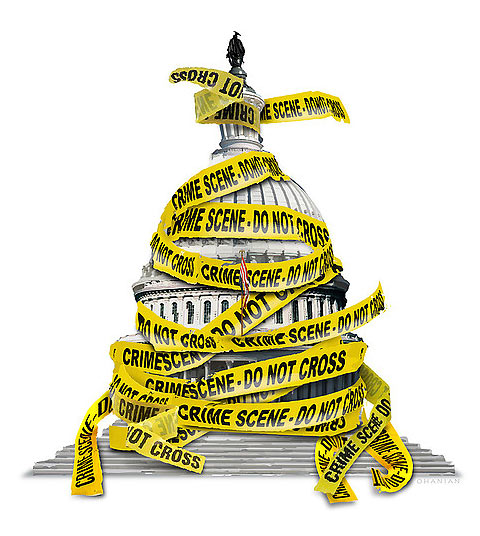
Oddly, one proposed solution to this state of affairs is to simply take off all limits and let politicians glide with a few fat-cat backers, restrained only by full disclosure. Including soft money, the top 1% of income earners already provide the vast bulk of campaign cash, exceeding PACs. Politicians needn’t be rocket scientists to know the majority of people in the top 1% view many issues – such as uncapped interest deductions on loans for high-priced homes – pretty much the same way. Again, disclosure falls short of revelation.
If you think we have funny races now, turn all our candidates into horses owned by the biggest bettors. As they won’t differ much on real issues, we will be treated to demagoguery. Their strategies will center not on better ideas but on engineering the failure of the opposition.
Applaud any tightening of disclosure, but the only way to curb undue influence, from both international and domestic sources, is to curb undue influence. That means curbing money. Banning soft money and giving teeth to the Federal Election Commission would be a big start. Voluntary participation in a system with spending limits, meaningful media access and citizen financing – which would also free politicians – with tough limits on contributions from every source would be even better. The public cost would be a pittance compared with the savings from more government decisions based on the merits; consider just the cost of delayed oversight of the thrift industry.
Those who would limit reforms to disclosure cite the difficulty, both judicial and legislative, in keeping both foreign and domestic money from finding indirect routes. But that difficulty also applies to the proper disclosure of the routes money takes into one pocket and out the other. That’s why real contribution limits are necessary.
Until the Supreme Court wises up and admits that unlimited money isn’t unlimited speech, participation in a public financing system will have to be voluntary. But polling shows strong, consistent support for public financing. Access to meaningful media formats at reduced cost must be a component. As voters rebel against the cynicism expressed by turn-of-the-century writer Elbert Hubbard, “Government is a kind of legalized pillage,” big spenders who scoff at a serious reform system are likely to suffer backlash.
The confused message our system sends abroad, and perhaps at home, was made clear recently when the bureau chief of a South American TV network asked me: What is wrong with influence from foreign contributions? After all, we live in a global economy.” I answered that if nothing were wrong with it, folks like Lincoln couldn’t pen phrases like “government of the people, by the people, for the people,” but I don’t think I was persuasive.
Conventional wisdom on the last campaign is that a wary public balanced a Democratic White House with a Republican Congress. But a nationwide agreement between voters to neutralize parties was less a factor then the money-raising power of incumbency.
That power is the enemy of reform. Vice President Gore, Rep. Dick Gephardt and others seeking the White House are already pulling levers on the fund-raising machinery, as are congressional incumbents. The desire for another day, another dollar won’t abate unless the public insists that this is a matter of national shame. Then real reforms may become an irresistible avenue for a White House mea culpa and political absolution. Restoring credibility to government will enhance elected officials ability to carry a tough sell, such as entitlement reform, to the public, without being handed their hands.
If the fallout from John Huang brings about real campaign-finance reforms – perhaps the greatest accomplishment the President and Congress might achieve – we should all take Mr. Huang to lunch. Campaign money, like rainwater, will always seek the leaks in our democratic roof, but that’s no reason not to keep plugging the holes. People who wait only for fixes that are absolutes will be waiting for Godot. Voters know our system of campaign finance attacks the concept of one person, one vote, and their sense of disenfranchisement just provided the lowest Election Day turnout since 1924.



